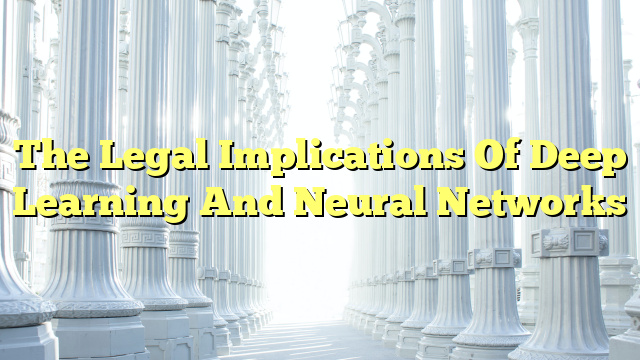Deep learning and neural networks have become increasingly popular in the world of AI as a way to create highly effective machine-learning models. The use of these models has led to great improvements in areas such as computer vision, natural language processing, and robotics. However, with the increased use of deep learning and neural networks come legal and ethical implications that must be addressed.
What are the legal concerns of machine learning?
The legal concerns of machine learning are related to the potential risks associated with the technology. These risks can include possible misuse of personal data, privacy violations, or even potential legal liabilities associated with the use of the technology. These concerns must be considered when developing and deploying any machine-learning model.
What are the legal and ethical issues in artificial intelligence?
The legal and ethical issues associated with AI are similar to those associated with machine learning. These include potential privacy violations, misuse of personal data, or the potential for legal liability. In addition, there are ethical concerns related to the use of AI, such as potential biases or discriminatory practices. It is important to consider these potential risks before deploying any AI system.
What are the legal ramifications of artificial intelligence?
The legal ramifications of artificial intelligence vary depending on the particular AI application. For example, in areas such as healthcare, there are potential issues related to patient privacy and the accuracy of AI systems. In other areas, such as autonomous vehicles, there are potential liability issues related to the safe operation of the vehicles. It is important to consider these potential legal implications when deploying any AI system.
What is learning law of neural networks?
The learning law of neural networks is a set of laws that govern the behavior of neural networks. These laws are based on the algorithms used to interpret data and build models. The learning law dictates how the neural network should learn from the data it is provided with, how it should make decisions, and how it should interpret information it receives. By following these laws, AI systems can be designed to be accurate and reliable.
Conclusion
Deep learning and neural networks are powerful tools for creating highly effective machine-learning models. However, these tools come with a variety of legal and ethical implications that must be considered before deploying any AI system. It is important to understand the potential risks associated with the use of these technologies and to take steps to mitigate those risks. By doing so, organizations can ensure that their AI systems are reliable and compliant with relevant laws and regulations.


While neural networks may offer huge advancements, they can potentially create legal issues due to their deep learning capabilities. I believe, however, that this can be prevented with robust oversight and regulations.